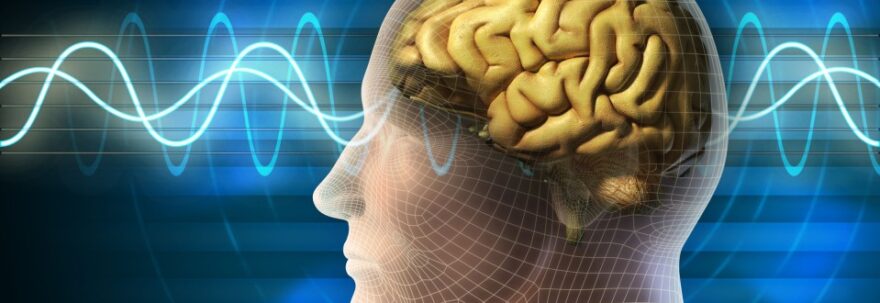Introduction to Mental Health and its Importance
Mental health is a topic that has been gaining significant attention in recent years, and for good reason. Our mental well-being plays a crucial role in our overall quality of life. It affects how we think, feel, and interact with the world around us. With the rising awareness about mental health, innovative technologies have emerged to help individuals better understand and manage their emotional well-being. In this blog post, we will delve into the fascinating world of mental health tracker technology and explore how these devices are revolutionizing the way we monitor and support our mental wellness. So grab a cup of tea (or coffee!) as we take a deep dive into this exciting field!
The Rise of Mental Health Tracker Technology
In recent years, there has been a surge in the development and use of mental health tracker technology. These innovative devices are designed to help individuals monitor and manage their mental well-being more effectively than ever before.
One example of such technology is the Dhyana ring, a wearable device that tracks various aspects of mental health, including stress levels, sleep patterns, and even meditation sessions. This compact ring is discreet yet powerful in its ability to provide valuable insights into one’s emotional state throughout the day.
Another popular mental health tracker is an app called Moodpath. This app utilizes questionnaires and mood tracking to help users identify patterns and triggers for their emotions. It also provides personalized recommendations for self-care activities based on individual needs.
These trackers offer numerous benefits for those struggling with mental health issues. They can serve as helpful tools for self-awareness and provide data-driven insights into how certain behaviors or situations impact our well-being. By tracking our moods, stress levels, sleep quality, or exercise habits over time, these devices can assist us in making positive changes to improve our overall mental wellness.
However, it’s essential to recognize that there are limitations and concerns when relying solely on these trackers for managing mental health. While they can be useful tools in monitoring trends and patterns over time, they should not replace professional advice or treatment from qualified healthcare providers.
When choosing the right mental health tracker for you, consider your specific needs and preferences. Some may prefer a wearable device like the Dhyana ring because it offers continuous tracking without requiring much effort from the user. Others may find apps like Moodpath more suitable due to their convenience and accessibility.
In conclusion,Mental health tracker technology has revolutionized how we approach managing our emotional well-being.
While these devices have proven beneficial in providing valuable insights,it is important not to solely rely on them.
Rather,the best approach lies in combining personal monitoring with professional guidance to achieve optimal mental health. So, embrace the power of these trackers as a
Types of Mental Health Trackers
- Wearable Devices: One of the most popular types of mental health trackers is wearable devices. These include smartwatches and fitness bands that can monitor various aspects of your mental well-being, such as heart rate, sleep patterns, and stress levels. Some advanced models even have built-in sensors to detect changes in mood or emotional states.
2. Smartphone Apps: With the widespread use of smartphones, there is a growing number of mental health tracking apps available on app stores. These apps offer features like mood tracking, meditation guides, cognitive behavioral therapy exercises, and reminders for self-care activities.
3. Biofeedback Devices: Biofeedback devices are designed to measure physiological responses associated with stress and anxiety, such as heart rate variability (HRV) and skin conductance level (SCL). By providing real-time feedback on these parameters, users can learn to recognize their body’s response to stressors and develop strategies for managing them.
4. Virtual Reality (VR): Virtual reality technology has also found its way into the realm of mental health trackers. VR headsets can create immersive experiences that help individuals relax or confront specific phobias or anxieties in a controlled environment.
5. Mood Journals: While not technically high-tech gadgets, mood journals are valuable tools for monitoring emotions over time. They allow individuals to track their moods throughout the day by recording thoughts and feelings regularly.
6. Sleep Trackers: Good sleep plays a crucial role in maintaining optimal mental health. Sleep tracker devices or apps monitor factors like sleep duration, quality, interruptions during the night and provide insights into how these may impact overall well-being.
7. Meditation Rings: A unique type of device gaining popularity in recent years is meditation rings like Dhyana Ring which combines mindfulness practices with modern technology.
They use an integrated sensor system that tracks your breathing patterns,respiration rate,and other indicators to guide you through personalized meditation sessions.
These rings can be a convenient and discreet way to incorporate mindfulness into your daily routine and track your progress over time.
Benefits of Using Mental Health Trackers
One of the significant benefits of using mental health trackers is that they provide valuable insights into our emotional well-being. These devices can track various aspects such as sleep patterns, heart rate variability, and even mood fluctuations. By monitoring these parameters over time, we can gain a better understanding of our mental state and identify any patterns or triggers that may impact our overall well-being.
Another advantage is the ability to set personalized goals and track progress towards achieving them. Whether it’s practicing mindfulness meditation or maintaining a consistent sleep schedule, mental health trackers can help us stay accountable by providing reminders and tracking our progress. This feature promotes self-awareness and encourages positive habits for managing stress and improving overall mental wellness.
Furthermore, mental health trackers offer real-time feedback on our physiological responses to stressors. For example, if we notice a spike in heart rate during certain situations or activities, we can take proactive steps to manage stress levels before they escalate further. This empowers individuals to make informed decisions about their daily routines or seek appropriate support when needed.
Additionally, these devices facilitate communication with healthcare professionals by generating comprehensive reports based on collected data. Sharing this information with therapists or doctors allows for more accurate assessments and tailored treatment plans. It also fosters open dialogue between patients and providers, leading to more effective interventions.
Lastly but importantly,mindfulness practice has gained popularity due to its potential benefits in reducing anxiety,stress ,depression . Mental Health Trackers have embedded mindfulness features which assists users throughout their mindfulness journey.
Users can set reminders for mindful breathing exercises,self-reflection prompts,and gratitude practices.
These tools serve as gentle nudges reminding individuals about the importance of self-care amidst busy schedules.
Mental Health Trackers essentially act as personal coaches empowering users t0 prioritize their well-being through regular mindfulness practice
In summary,Mental Health Trackers deliver several advantages including gaining insights into emotional well-being ,setting personalized goals,tracking physiological responses,nurturing effective communication with healthcare professionals, and incorporating mindfulness practice into daily routine. By harnessing the power of technology, these devices can support individuals in maintaining good mental health and improving overall quality of life.
Limitations and Concerns with Mental Health Trackers
While mental health trackers can be a valuable tool in monitoring our well-being, it’s important to recognize their limitations and potential concerns. One limitation is that these devices rely solely on self-reported data, which may not always accurately reflect our mental state. Emotions can be complex and subjective, making it challenging for a tracker to capture the full picture.
Another concern is privacy. Mental health data is highly personal and sensitive, raising questions about who has access to this information and how it will be used. It’s crucial for users to carefully consider the privacy policies of any mental health tracker they use.
Additionally, some individuals may find that relying too heavily on a device can actually exacerbate feelings of anxiety or stress. Constantly checking the numbers or seeking validation from a gadget could lead to unhealthy behaviors or an overreliance on technology.
Furthermore, there is the risk of misinterpretation or over-reliance on algorithms. These trackers often analyze patterns and provide suggestions based on pre-programmed algorithms but may not account for individual differences or unique circumstances.
It’s also worth noting that mental health trackers should not replace professional help if needed. While they can provide insights into our emotional well-being, they cannot offer proper diagnosis or treatment options like trained healthcare professionals can.
Mental health trackers have their benefits in promoting awareness and encouraging healthy habits but come with limitations as well as potential concerns such as accuracy, privacy issues, dependency tendencies, algorithmic bias, and inability to replace professional support when required
How to Choose the Right Mental Health Tracker for You?
When it comes to choosing the right mental health tracker for you, there are a few key factors to consider. First and foremost, think about your specific needs and goals. Are you looking to track your stress levels throughout the day? Or perhaps you want to monitor your sleep patterns or mood fluctuations.
Next, take into account the features and functionality of different trackers on the market. Some devices offer heart rate monitoring, while others focus more on sleep analysis or meditation guidance. Consider what aspects of your mental health you want to prioritize and find a device that aligns with those needs.
It’s also important to think about compatibility and ease of use. Make sure the tracker is compatible with your smartphone or other devices so that you can easily access and analyze your data. Additionally, consider how user-friendly the interface is – will it be easy for you navigate and understand?
Another factor to keep in mind is battery life and durability. You’ll want a tracker that can withstand everyday wear and tear without needing frequent charging or risking damage.
Look at customer reviews and ratings for different devices. This can give you insights into real-life experiences with the trackers, helping you make an informed decision.
By considering these factors, you can narrow down your options and choose a mental health tracker that suits your individual needs best!
Conclusion
In this fast-paced digital age, mental health has become a pressing concern for many individuals. Fortunately, with the rise of technology, we now have access to various mental health trackers that can help us monitor and manage our emotional well-being.
From wearable devices like the Dhyana Ring to mobile apps and online platforms, these trackers offer valuable insights into our mental state. They can track factors such as sleep patterns, heart rate variability, stress levels, and even mood fluctuations. By analyzing this data over time, we gain a deeper understanding of ourselves and can take proactive steps towards improving our overall mental health.
However, it is important to approach these tools with caution. Mental health trackers are not a substitute for professional medical advice or therapy. They should be used as complementary tools in conjunction with traditional forms of treatment.
When choosing a mental health tracker that suits your needs, consider factors such as accuracy of data collection, user-friendly interface, privacy settings, and compatibility with your preferred devices. It’s crucial to select a device or app that aligns with your goals and preferences while also prioritizing your personal information security.
While there are limitations and concerns associated with these technologies – including potential inaccuracies in tracking metrics or overreliance on self-diagnosis – they still hold great promise in assisting individuals on their journey towards better mental well-being.
Remember that taking care of your mental health goes beyond just using technology; it involves practicing self-care techniques such as exercise, mindfulness meditation (like wearing the Dhyana Ring), seeking support from loved ones or professionals when needed,and finding healthy ways to cope with stressors in daily life.
Ultimately,maintaining good mental health requires a holistic approach combining various strategies tailored to individual needs.
Always remember: you have the power to prioritize your own well-being!
So why wait? Harness the power of technology at hand responsibly,and embark on an empowering journey towards improvedmental wellness today!




